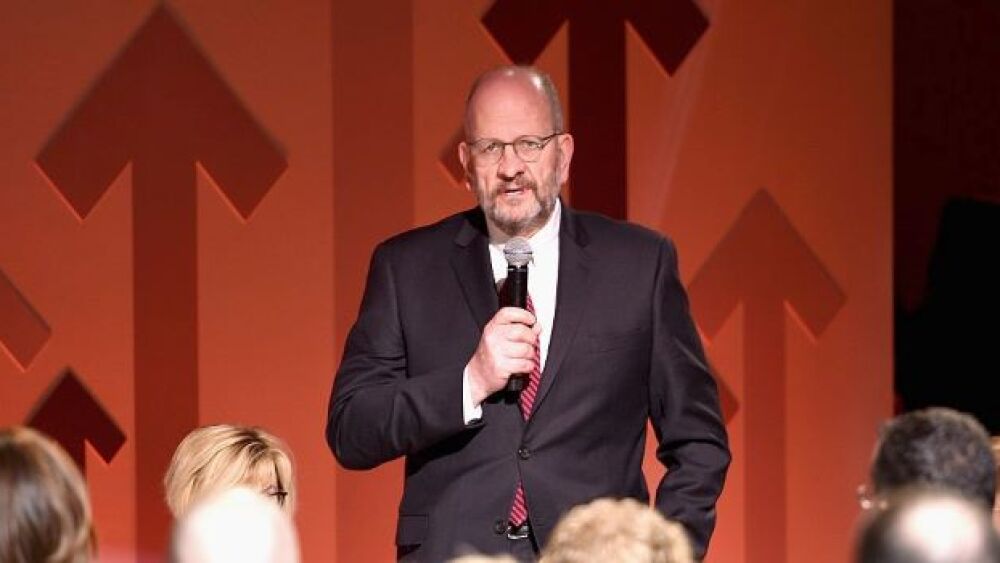Merck has announced the retirement of Dr. Roy D. Baynes, head of global clinical development and chief medical officer of Merck Research Laboratories.
Courtesy of Dimitrios Kambouris/Getty Images
Merck (MSD) has announced the retirement of Dr. Roy D. Baynes, head of global clinical development and chief medical officer of Merck Research Laboratories (MRL). Baynes will be succeeded by Dr. Eliav Barr on April 1, 2022.
Baynes joined Merck in 2013 and had a fruitful career, leading Merck into the oncological drug space. Under his leadership, the company achieved more than 140 medicine and vaccine approvals globally in a variety of therapeutic areas. Notably, Keytruda (pembrolizumab), a widely utilized humanized antibody used in cancer immunotherapies, and vaxneuvance (pneumococcal 15-valent conjugate vaccine), a vaccine to prevent infection by Streptococcus pneumoniae serotypes, were developed under Baynes’ lead.
“Roy is one of the world’s pre-eminent oncologists and clinical development experts, and his masterful spearheading of the development of KEYTRUDA leaves an indelible mark on Merck, on oncology and on the lives of patients and their families. As textbooks are updated to reflect the era of immuno-oncology, Roy’s contributions cannot be overstated, and will persist far beyond his eight years with Merck,” said Dr. Dean Y. Li, president of MRL. “I know there are many who join me in thanking Roy for his efforts and wishing him well in his next chapter.”
Following his retirement from Merck, Baynes will join Eikon Therapeutics as executive vice president and chief medical officer, effective July 11, 2022. As he steps into his new roles, Baynes is expected to assume responsibility for building the company’s clinical research and development team. He is also anticipated to serve as the site leader for a new Eikon Therapeutics facility on the East Coast of the U.S.
Dr. Eliav Barr, senior vice president of global clinical development at Merck, will succeed Baynes. Barr has served at the company for more than two decades, holding positions of increasing leadership responsibility in oncology and infectious disease clinical development programs. Notably, he has played a role in the development of novel therapies for chronic hepatitis C and human immunodeficiency virus (HIV) infections.
“Eliav’s career at Merck has been marked by roles spanning infectious diseases, oncology and vaccines involving the development of several first-of-their-kind medicines and vaccines that have since been used by millions of people around the world. Most notably, he led the development of Merck’s human papillomavirus (HPV) vaccines, which have become key tools in the global effort to reduce the burden of certain cancers and diseases caused by HPV,” Li said.
In his new role, Barr is anticipated to lead all late-stage clinical development for Merck’s portfolio covering a broad spectrum of human health conditions. Recently, he led Merck’s Global Medical Affairs organization, which expanded Merck’s scientific engagement and implementation of oncological therapies and vaccines globally.
Merck has had a string of successes in the past month with pembrolizumab, one of its lead assets, bolstering its presence in the oncological drug arena. Pembrolizumab recently became a U.S. Food and Drug Administration-approved treatment for advanced endometrial carcinoma, marking another tally for the drug which already has activity across 25 different cancer types. Additionally, the drug has had positive clinical trial results in the treatment of non-small cell lung cancer and melanoma this month. Beyond pembrolizumab, Merck also has reported that its therapeutic lynparza, developed in collaboration with AstraZeneca, shows efficacy in patients with early breast cancer.





